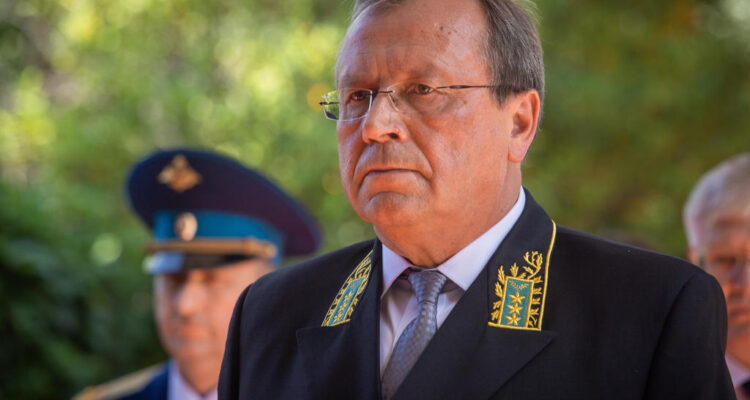The site of the planned consular office is currently being used as a parking lot.
By Pesach Benson, TPS
Russia and Israel signed an agreement to open a consulate office in Jerusalem, Israel’s Foreign Ministry and the Russian embassy announced on Friday. But why now?
The agreed-upon location in central Jerusalem resolves a long-running dispute over a plot of land located at the corner of what is now King George V and Ma’alot Streets. The plot of land was purchased by Russia in 1885.
The Jerusalem municipality is reportedly relinquishing claims on years of unpaid taxes as well as cancelling a plan to expropriate a portion of the property for the construction of a light rail line on King George St., a main traffic artery.
The site of the planned consular office is currently being used as a parking lot. The announcements did not indicate a timetable for when construction will begin or when the Russians hope to open the consulate.
Professor Ze’ev Khanin, an expert on post-Soviet politics and society at Bar Ilan University, told the Tazpit Press Service that there were several factors behind the timing of the agreement.
“There are very few Western countries that are ready to have anything to do with Russia. It’s important for them that Israel as a Western country is able or ready to sign an agreement. They need to show to the Russian public any success in a foreign policy issue. That’s what they need at the moment,” Khanin explained.
Another reason, Khanin said, is that “Putin is desperate to reach understandings and get support from the Arab countries, like the Saudi bloc.” Opening a consulate in Jerusalem signals to the Arabs that “Russia has other options in the Middle East.”
Khanin also noted that the agreement on the consulate was actually reached a month ago, but the announcement’s timing may also be a counterweight to Ukrainian First Lady Olena Zelenska’s visit to Israel this week.
Khanin said that “Israel is interested to keep a balanced relationship with Russia, meaning our interest on the northern borders like Syria and so on,” referring to Israeli airstrikes against Iran and its proxy terror groups. Israel and Russia have security coordination to avoid firing on each other, but that arrangement has been strained by the war in Ukraine.
Then there’s the issue of Russian Orthodox Church properties in the Holy Land.
That issue, he explained, goes back 20 years to the unification of the Russian Orthodox Church, which split during the Bolshevik Revolution. The church owns dozens of properties in Jerusalem and more around Israel that were purchased in the 19th century.
“Now Russia is demanding these properties back. Some properties have been returned, and it’s in Russia’s interests to get the rest of the properties back. It has a lot to do with church politics,” Khanin said. “Israel wants to close this chapter on the church properties.”
Khanin stressed that a number of European countries also maintain consulates in Jerusalem, so the fact that Russia is doing likewise “is not dramatic.”
Russia unexpectedly recognized Jerusalem as Israel’s capital in April 2017, but maintains its embassy in Tel Aviv.
The U.S., Guatemala, Honduras and Kosovo maintain embassies in Jerusalem.





